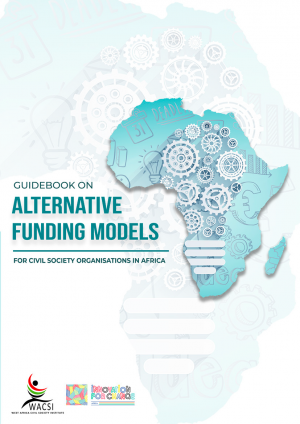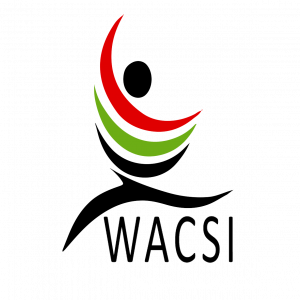In Africa, civil society has emerged as a key stakeholder in the development process and a vital force in strengthening governance processes. Civil society continues to grow and evolve. The sector’s contribution to democratic development and consolidation has been significant. Nonetheless, civil society organizations (CSOs) in Africa are generally fragile and dependent on donor funding mechanisms for survival. CSOs are under immense pressure to operate, survive and thrive in an increasingly competitive sector, while maintaining independence and continually generating funds to pursue planned operations and command strong recognition and influence.
Overall, the picture of sustainability of civil society in Africa appears challenging and requires an urgent response to ensure positive and sustainable outcomes in the future.
CSOs face a diverse range of contextual factors on the continent which challenge their capacities for strengthening financial sustainability. Restrictive government regulations, poor economic conditions, lack of local philanthropic culture, competition between CSOs and inadequate skilled labour, all limit the ability of CSOs to operate independently.
In addition, internal dynamics such as organizational culture, management capacities, internal governance structures, and financial planning mechanisms can severely impact an organizations’ ability to build financial sustainability. Diversification of revenue sources has come to the fore as one of the key methods of achieving financial sustainability. Acquiring a mix of external and domestic funding sources help organizations to sustain their financial viability. WACSI’s experience has shown that factors for successful diversification and financial sustainability are highly dependent on the characteristics of the organization itself, its identity and the context within which the organization operates.
To promote a deeper understanding of this, the West Africa Civil Society Institute (WACSI) and Innovation for Change (I4C) – Hub Afrique organized a Shared Learning Convening on Alternative Funding Models for Civil Society in Accra from the 26 – 28 November 2018. The convening attracted 25 civil society actors and organizations from Africa, Latin America and Europe to share strategies, models, experiences and lessons learnt from the implementation of non-traditional approaches to generate financial resources. The gathering revealed achievements, areas for improvement, the various roadblocks preventing civil society from becoming fully sustainable and an effective mechanism for organizing civic action. A key product from the convening was the development of an alternative funding models guidebook for civil society in Africa.
The guidebook is designed to raise awareness, broaden the understanding of financial sustainability, promulgate best practices for the civil society sector and improve the practice of sustainability of CSOs. The guidebook will help CSOs to explore the existing models that are being used, understand them and know how to implement a given model that aligns with the mandate of their organization. This resource highlights the conducive factors that CSOs need to cultivate their financial sustainability and to advance their development objectives.
The guidebook focuses on the following alternative models: (1) Consultancy Services (2) Asset Building (3) Events Organization (4) Membership Fees (5) Social Enterprise (6) Microfinance (7) Fiscal Sponsorship (8) Subsidiary Profit-Making Enterprises (9) Incubation (10) Private Sector (11) Social and Green Bonds (12) Crowdfunding.
Photo by Annie Spratt on Unsplash


